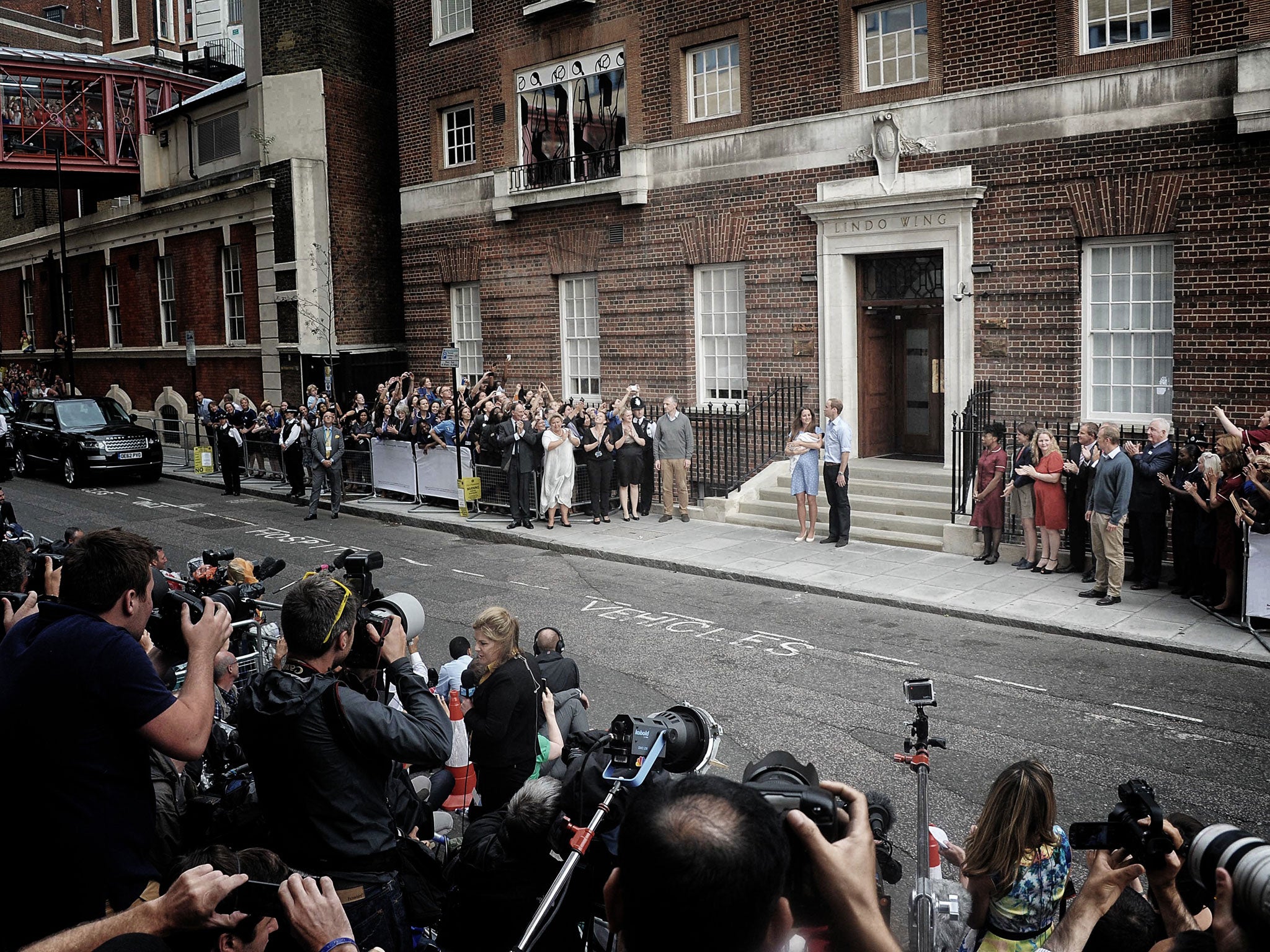This has been a good week to be a republican
You wouldn't know it from the deference of the royal baby coverage, but a poll this month showed more than half of us weren't bothered

The expectation of deference has largely disappeared: politicians, business leaders, even archbishops, now expect to be questioned robustly by journalists. There's only one institution left which doesn't get this degree of critical scrutiny and the results range from banal to hilarious; I couldn't help feeling sorry last week for the reporters camped outside Buckingham Palace and St Mary's Hospital, Paddington, waiting for a royal birth in the hottest weather for years. As time passed, they fell back on the old standby of interviewing each other, but there were surreal moments as well. One of the most choice was hearing the Queen's former press secretary talking with a straight face about the "people's pregnancy".
I'd like to put on record that I had no part in it, although I can't speak for the millions of men inadvertently implicated in the conception. A more imaginative species of paternity was implied by a man who turned up in Paddington with a painting showing the Duchess of Cambridge as the Virgin Mary; his insistence that her child would turn out to be the baby Jesus was cut short by an astonished interviewer, though not quickly enough to avoid comparison with some of the more extravagant claims made after the death of Princess Diana. These events illustrate two iron rules of royal "stories": nothing much happens most of the time, and reporters end up trying to extract sound bites from people they'd normally run a mile to avoid.
This has been a good week to be a republican. Strike that: it's been a fantastic week, as news organisations wake up to the fact that sentimental attitudes to the Royal Family are not universally shared. I've lost count of the times I've been asked to provide "a republican voice" by broadcasters, which is a very welcome change. But editors should have been warned by a YouGov poll earlier this month, which showed that more people in India than the UK were interested in the royal birth. Far from a nation panting for news, just over half of British adults (53 per cent) were uninterested, compared to 46 per cent who were "very" or "fairly" interested. In this context, any headline beginning "the country" or "the world" is bound to be wrong; I'm sure there were swathes of the Democratic Republic of Congo where the arrival of Prince George went entirely unremarked, but degrees of indifference were visible in London as well. When I arrived on Monday evening to do a TV interview outside Buckingham Palace, where an eager crowd had supposedly gathered to wait for news, I found what looked like the usual complement of tourists. There were dozens of film crews, but that's a different matter.
To return to that YouGov poll, I'm not surprised that Tory supporters were more interested in the birth than Labour voters. More significant for monarchists was the gender breakdown, which showed that more women than men were following the event. The scenes following Diana's death in 1997 revealed a previously unremarked tendency among women to identify with female members of the Royal Family, and there seems to have been a marked preference among women last week for a female baby. That's why the birth of a male heir is not great news for the monarchy, which now offers an unbroken line of three kings when the present Queen's reign ends. Whether the institution can survive a couple of decades with the meddling Prince Charles at its head is another question, but we have the prospect of a male head of state for the rest of this century.
Not just that but a head of state who, by virtue of the way hereditary monarchy works, may not be crowned until he is in his sixties or seventies. Age isn't a reason for ruling someone out of a job, but this is a system which fails every single test of diversity and equality. Once the Queen dies, the de facto list of exclusions from the throne will go like this: no women, no black people, no Asians, no Jews, no Catholics (still barred by law) and probably no one under the age of 50. I also doubt whether we'll see an openly gay king, unless the Royal Family changes radically. The good news as far as I'm concerned is that the number of people who are unhappy with this situation is growing, judging by the hostile reaction to uncritical reporting of the royal birth. The monarchy got its most recent crisis in early, before bankers and MPs, and it's had longer to recover. But the Royal Family's popularity is shallow, and its entanglement with celebrity involves considerable risk.
I know nothing about Prince George, other than the fact that he's six days old. But the notion that this tiny baby automatically has the qualities to do anything, whether it's becoming a plumber or a monarch, belongs in the Middle Ages. I live in a modern democracy and I want every child, regardless of background, to grow up knowing he or she could become head of state.
Join our commenting forum
Join thought-provoking conversations, follow other Independent readers and see their replies
Comments
Bookmark popover
Removed from bookmarks